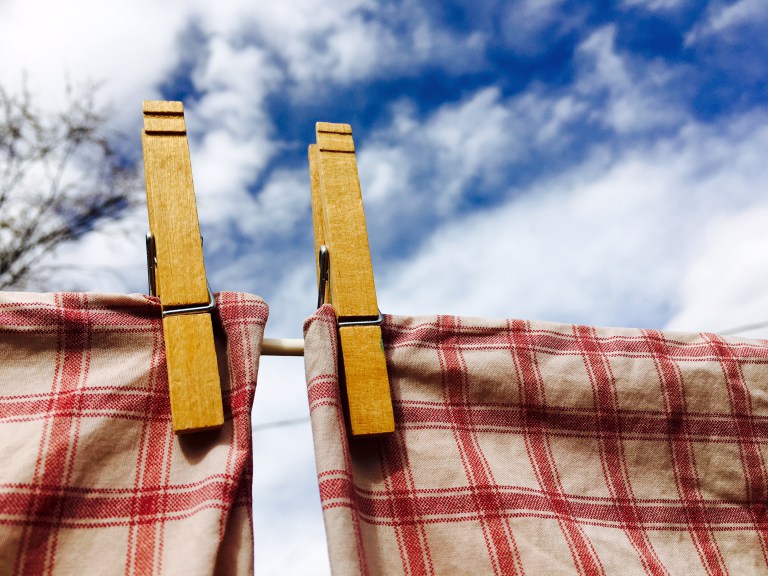My Year of Buying Nothing New: 4-Month Update
by Julie Fathy | April 25, 2016

I’ll be honest—on January 1, 2016, when I pledged to buy nothing new for the entire year, it wasn’t like going cold turkey. I didn’t go on a shopping spree the day before (or anytime in the year before) and announce, “This has got to stop!”
For over a decade, I’ve been on a path of voluntary simplicity and have made slow and incremental shifts along the way. My pledge hasn’t been particularly difficult, as I’ve backed away from mainstream thinking and living and have found joy in a different kind of life—one with less stuff.
I’m not a typical consumer. I’ve downsized twice, each time to smaller homes. I’ve driven the same car, which I purchased used, for 13 years. My house is minimally furnished, mostly with used and antique furniture. The majority of clothing added to my small wardrobe is purchased secondhand. My vacations are usually spent camping or visiting distant family. By choice I’ve gone without, and I love it.
Given my lifestyle, it’s not a huge stretch for me to go a year without buying anything new, and, with all honesty, I’m allowing some exceptions. Those exceptions are food and household consumable goods, parts and supplies for home and car maintenance, special occasion gifts for my family, necessary items for my kids (such as school supplies), and anything used. That still sounds like potential for buying a lot of stuff, but I don’t have a strong desire to own more, so I’m less tempted to buy more.
I’m four months into my pledge, and my purchases have been limited to food and household consumables, a few secondhand items, and two birthday gifts for my teenage son. I’m not immune to having “wants” and falling prey to consumerism, but I’ve set myself up for success in my year of buying nothing new.
If you’re interested in trying a year, or even a month, of buying nothing new, or just want to further pursue voluntary simplicity, here are five tips I can offer:
1. Set a goal
My goal is to reach financial freedom without participating in a system that encourages working longer hours, earning more money, and taking on debt to buy, own, and consume more. I don’t want to be indebted to a broken system, so I’m opting out and reaching my goal of financial freedom by saying “no” to buying more stuff.
2. Allow exceptions
Last year, I made the same pledge to buy nothing new, but I failed when my husband’s and kids’ birthdays and Christmas rolled around. Although an experiential, handmade, or secondhand gift is always my first choice, there are times when my family wants something new—I can make an exception for that. The point of my pledge isn’t to feel like a failure, it’s to be mindful of my consumption.
3. Eliminate marketing messages from your life
Unsubscribe, unfollow, and unfriend from companies selling you stuff—do whatever it takes to stop marketing messages from entering your space. It also helps to stop watching television, reading publications with paid advertising, and visiting retail stores (brick and mortar or online).
4. Put an emphasis on activities, experiences, and relationships
Pursue your passions, learn new skills, get outside, and spend meaningful time with the people that matter to you. By placing value in these things, accumulating more stuff no longer takes priority.
5. Learn contentment with what you have
The first four tips are somewhat pointless if you can’t find contentment with what you have. Removing the layers of stuff and living without has been the best lesson in my life. Yes, I’ll keep on consuming, but never again thoughtlessly or excessively. Too much stuff puts my life and the life of the planet at stake, and that’s not a price I’m willing to pay.
Julie Fathy lives with her family in Denver, Colorado, and is the author of the blog thebeautyinsimple.com.

